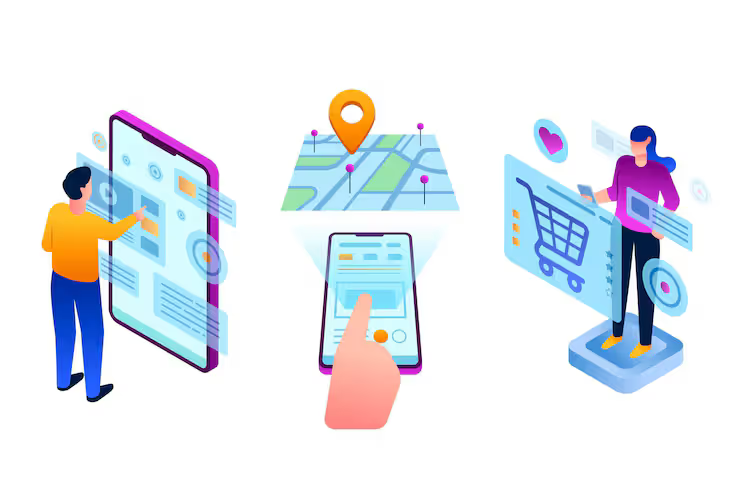Understanding Mobile Tracking Software: Uses, Laws, and Tools
Mobile tracking software is a category of applications and equipment, sometimes designed to monitor mobile devices to monitor and control. These devices can track GPS locations, monitor the app usage, check calls or text logs and even capture screen activity, which depends on permits.

Relevance of Mobile Tracking Software
Mobile tracking software is very relevant for many reasons in today's digital environment:
1. Monitoring of Parents
Parents use tracking apps to monitor the use of children's devices and ensure that they are online and offline.
-
Surplus involved
-
Monitoring of screen time
-
Dissection
-
Detection
2. Staff Manager
The organizations use mobile tracking software on the company owned by the company:
-
Monitor productivity
-
Stop data leakage
-
Find the staff in the area
3. Lost or Stolen Device Recovery
Tracking software helps users find lost phones through GPS or Wi-Fi triangle, improving the recycling options.
4. Individual Security
People use tracking apps so that loved ones can know their location when it comes to emergencies, often with SOS features.
5. Fleet and Distribution Services
Companies that manage delivery or transport services track driver's seats to adapt logistics and ensure timely operation.
Recent Update - Trends and Changes in Mobile Tracking (2024–2025)
The mobile tracking landscape has evolved rapidly the previous year, influenced by technical trends, privacy considerations and regulatory surveys.
Example:
-
The Google Find device received a larger update to allow offline tracking through equipment nearby in May 2024.
-
Apple's iOS 17.3 flag the enhanced app transparency, background trackers and required user warning.
Law or Policy - Legal Views on Mobile Tracking
Mobile tracking software is governed by privacy laws and electronic monitoring rules, which are different from the country. The main principle is informed - users should know that they are being tracked.
In most areas:
-
Tracking of employees is only allowed on work equipment with consent.
-
Children are allowed to trace parents, but apps should not abuse this data.
-
Partner or others can be regarded as illegal monitoring without their knowledge.
-
Apps that violate these laws can be banned from the App Store or prohibited.
Tools and Resources - Reliable Software and Services for Mobile Tracking
Below are some reputable equipment and services that comply with legal standards and offer transparent tracking functions.
Important Note: Always read the Privacy Policy rules and confirm the user's consent before using tracking features.
Common Questions - General Questions about Mobile Tracking Software
Q1: Is mobile tracking software legal?
Yes, but only with informed consent. Shopping someone without their knowledge can be considered illegal in most courts, especially if the person is not a minor or does not use the work equipment.
Q2: If the phone stops, can mobile tracking work?
No, if the phone stops or the battery is dead, GPS tracking in real time will not work. However, the final known place may be available from services such as Google Find My Device.
Q3: Are the tracking apps to detect by a person being tracked?
Most legal tracking apps appear on the device and include the consent screen. Hidden Tracking (Spyware) is not recommended and it can break privacy laws.
Q4: Can track apps access to personal data such as photos or messages?
Only if necessary permits are granted by the user. Parents' control and MDM tools often have such access, but it should be revealed during installation.
Q5: What is the risk of using tracking software?
-
Abuse to chase or monitor
-
Data violation or leakage
-
Attack of privacy when used without consent
Always choose the app with openness about end-to-end encryption, secure data storage and data usage.
Final Thoughts
Mobile tracking software plays an important role in today's digital world - which supports safety, security and efficiency in families, companies and individuals. However, it also comes with serious responsibility. It is important to respect consent, privacy laws and moral use.
